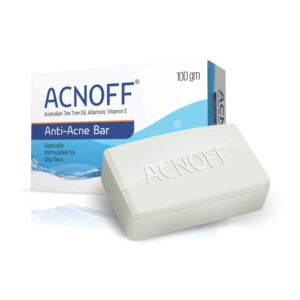ALLANTOIN + VITAMIN E ACETATE + TEA TREE OIL
Allantoin: Allantoin is a medication used primarily in topical skincare products as a soothing agent and keratolytic (skin softener). It is a natural compound found in plants such as comfrey and is synthesized in the laboratory for pharmaceutical use.
The main use of Allantoin is to promote skin healing and regeneration. It works by increasing the water content within the skin, which helps to moisturize and soften the skin. Additionally, it aids in the removal of dead skin cells, promoting the growth of new cells and improving the overall texture of the skin.
Allantoin is available in various forms, including creams, lotions, gels, and powders. The recommended dose and application method may vary depending on the specific product and the condition being treated. It is important to carefully follow the instructions provided by the manufacturer or consult a healthcare professional for proper usage.
Allantoin is generally well-tolerated and considered safe for most individuals. However, like any medication, it may cause some side effects. Common side effects include mild skin irritation, redness, and allergic reactions in some individuals. If any severe or persistent side effects occur, it is recommended to discontinue use and seek medical attention.
In summary, Allantoin is a topical medication commonly used in skincare products to promote skin healing, moisturization, and cell regeneration. It is generally safe and well-tolerated but may cause mild side effects such as skin irritation.
Vitamin E Acetate: Vitamin E acetate, also known as tocopheryl acetate, is a synthetic form of vitamin E. It is a fat-soluble vitamin that functions as an antioxidant in the body. It is commonly used in skincare products, dietary supplements, and as a food additive.
The mechanism of action of vitamin E acetate involves its antioxidant properties. It works by scavenging and neutralizing free radicals, which are unstable molecules that can damage cells and contribute to various health conditions. By reducing oxidative stress, vitamin E acetate helps protect the body against cellular damage.
Vitamin E acetate is available in various dosage forms, including capsules, tablets, and creams. The recommended dose varies depending on individual needs and the specific condition being targeted. For general use as a dietary supplement, the usual dosage ranges from 15-200 international units (IU) per day. It is essential to follow the instructions on the product label or consult a healthcare professional for the appropriate dosing regimen.
Although vitamin E acetate is generally safe for most people when used in recommended doses, it can have potential side effects. Common side effects may include nausea, diarrhea, stomach cramps, fatigue, headache, and blurred vision. It may also cause allergic reactions in some individuals, such as itching, rash, or swelling. High doses of vitamin E acetate can increase the risk of bleeding, especially in individuals on blood-thinning medications.
It is important to note that vitamin E acetate should not be used without medical supervision in individuals with certain medical conditions, such as bleeding disorders, high blood pressure, diabetes, or those undergoing surgery. It may interact with certain medications, including blood thinners and chemotherapy drugs.
As with any medication or supplement, it is always advisable to consult with a healthcare professional before starting vitamin E acetate to determine the appropriate dosage and to identify any potential drug interactions or contraindications.
Tea Tree Oil: Tea Tree Oil, also known as melaleuca oil, is an essential oil derived from the leaves of the tea tree plant (Melaleuca alternifolia). It has a long history of use as a traditional medicine by indigenous Australians.
Tea Tree Oil is commonly used topically for a variety of purposes. It is primarily known for its antimicrobial properties, making it effective against bacteria, fungi, and viruses. As a result, it is often used to treat skin conditions such as acne, athlete’s foot, and fungal infections. It can also be used to relieve symptoms of minor cuts, scrapes, insect bites, and stings. Additionally, it is sometimes used as an ingredient in shampoos and creams for dandruff and head lice.
The exact mechanism of action of Tea Tree Oil is not fully understood. However, it is believed to disrupt the cell membranes of microorganisms, leading to their destruction and inhibition of their growth.
Tea Tree Oil should always be used in diluted form. For skin conditions, it is typically applied topically by diluting a few drops of the oil in a carrier oil such as coconut oil or almond oil. The appropriate dilution ratio may vary depending on the individual and the specific condition being treated.
While Tea Tree Oil is considered safe for most people when used topically, there are a few potential side effects to be aware of. Some individuals may experience skin irritation or allergic reactions, such as redness, itching, or swelling. It is recommended to do a patch test on a small area of skin before using it more widely. In rare cases, people may be hypersensitive to Tea Tree Oil and experience more severe reactions. If any adverse reactions occur, it is best to discontinue use and consult a healthcare professional.
It is important to note that Tea Tree Oil is meant for external use only and should not be ingested. Ingesting Tea Tree Oil can cause toxicity and lead to symptoms such as confusion, dizziness, muscle weakness, and even coma.
It is always advisable to consult with a healthcare professional before using Tea Tree Oil, especially if you are pregnant, breastfeeding, or have any underlying medical conditions. They can provide personalized recommendations and ensure it is safe for your specific situation.

